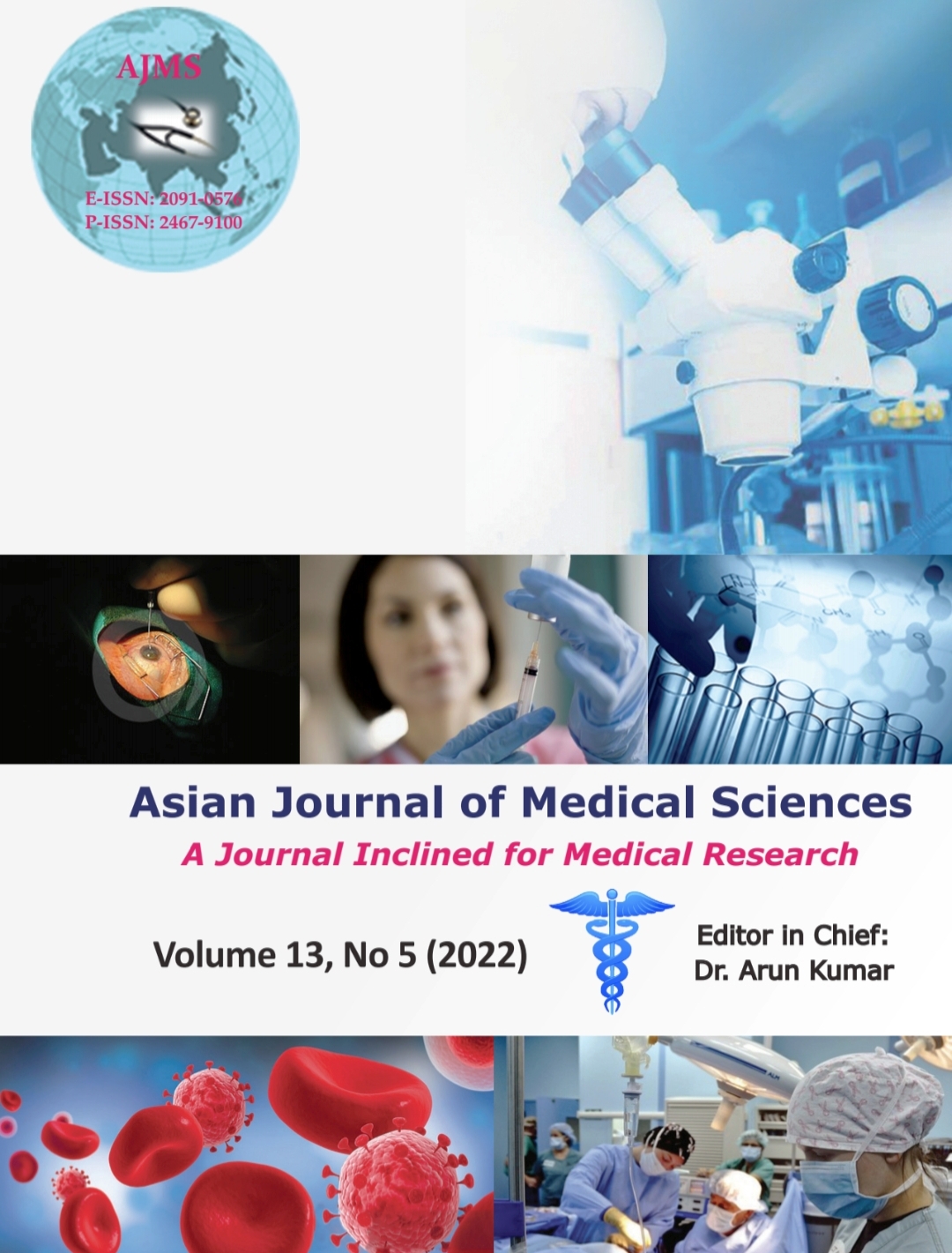Evaluation of Inflammatory markers in different stages of Chronic Renal Disease
Keywords:
Adenosine Deaminase, Chronic Kidney Disease, Estimated Glomerular filtration Rate, C-reactive proteinAbstract
Background: Chronic kidney disease (CKD) refers to a long-term loss of kidney function. The progression of CKD leads to the damage of other organs including cardiovascular disease which increased the risk of mortality. Early detection of kidney failure can slow down the end-stage renal disease.
Aims and Objectives: To estimate the inflammatory marker Adenosine deaminase (ADA) activity in different stages of CKD. To correlate the level of ADA activity with Serum Creatinine with different stages of CKD on the basis of estimated glomerular filtration rate (eGFR).
Materials and Methods: The participants having age more than 18 and <60 years having CKD have been enrolled as a study group. CKD was confirmed by calculating eGFR using Cockcroft-Gault equation, plasma creatinine estimation done in all the patients. This study was approved by the Ethical Committee of TMMC and RC.
Results: It is observed that the incidence of CKD reaches its maximum strength during middle age. 28% of the young patients, i.e., 45 years of age or younger at the time of CKD, had increased level of ADA. Serum levels of ADA, Creatinine were higher among participants with lower level of eGFR. Inflammation was higher among those with lower eGFR. All biochemical parameter (ADA, CRP, ESR) shows the negative correlation with eGFR. eGFR shows a negative highly significant correlation withESR with a correlation coefficient of r=−4.702 (P<0.001).
Conclusion: With the progression of Kidney disease (CKD stages 1–5) it comes to significantly increase of inflammatory markers as decrease in the eGFR with statistical significance. Inflammatory Biomarkers were inversely associated with the measure of kidney function. It is clear that a single indicator of renal function is not sufficient in evaluating the kidney disease stage.
Downloads
Downloads
Published
How to Cite
Issue
Section
License
Copyright (c) 2022 Asian Journal of Medical Sciences

This work is licensed under a Creative Commons Attribution-NonCommercial 4.0 International License.
Authors who publish with this journal agree to the following terms:
- The journal holds copyright and publishes the work under a Creative Commons CC-BY-NC license that permits use, distribution and reprduction in any medium, provided the original work is properly cited and is not used for commercial purposes. The journal should be recognised as the original publisher of this work.
- Authors are able to enter into separate, additional contractual arrangements for the non-exclusive distribution of the journal's published version of the work (e.g., post it to an institutional repository or publish it in a book), with an acknowledgement of its initial publication in this journal.
- Authors are permitted and encouraged to post their work online (e.g., in institutional repositories or on their website) prior to and during the submission process, as it can lead to productive exchanges, as well as earlier and greater citation of published work (See The Effect of Open Access).




